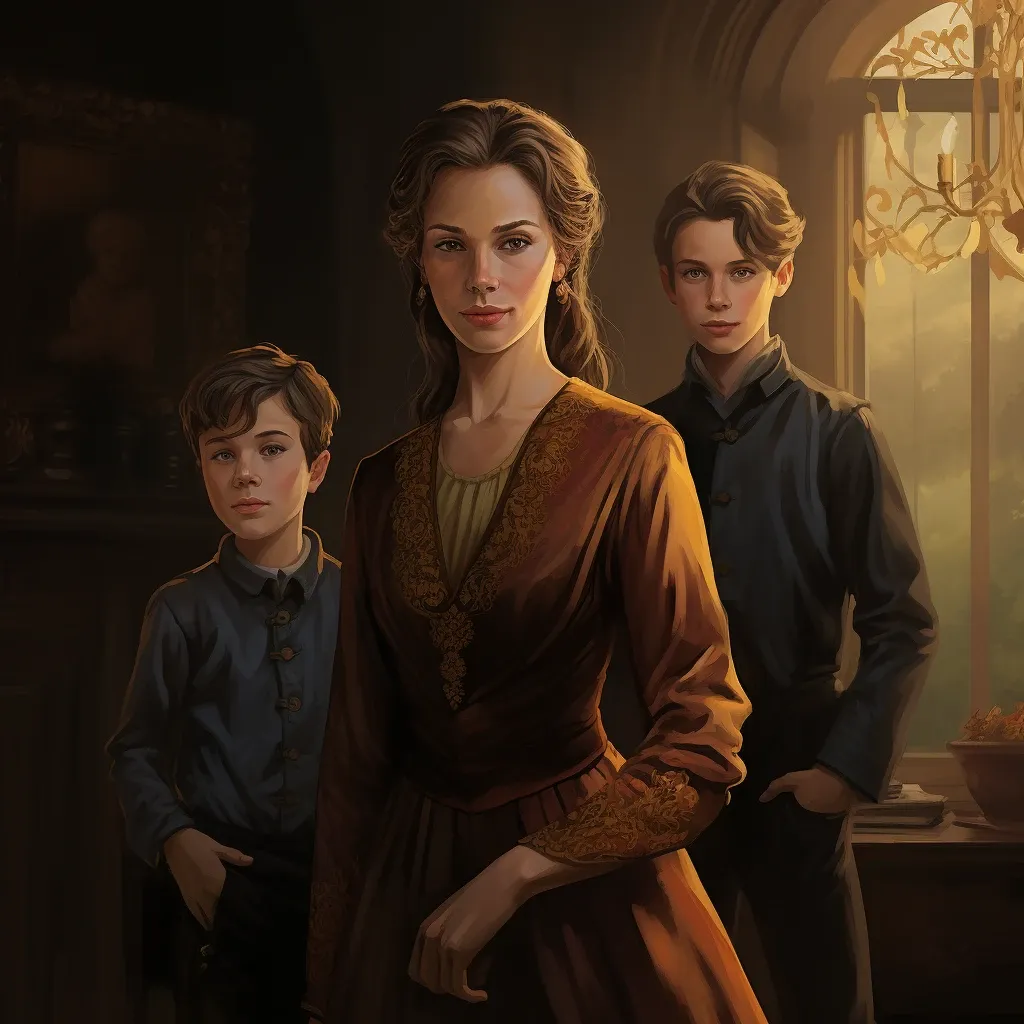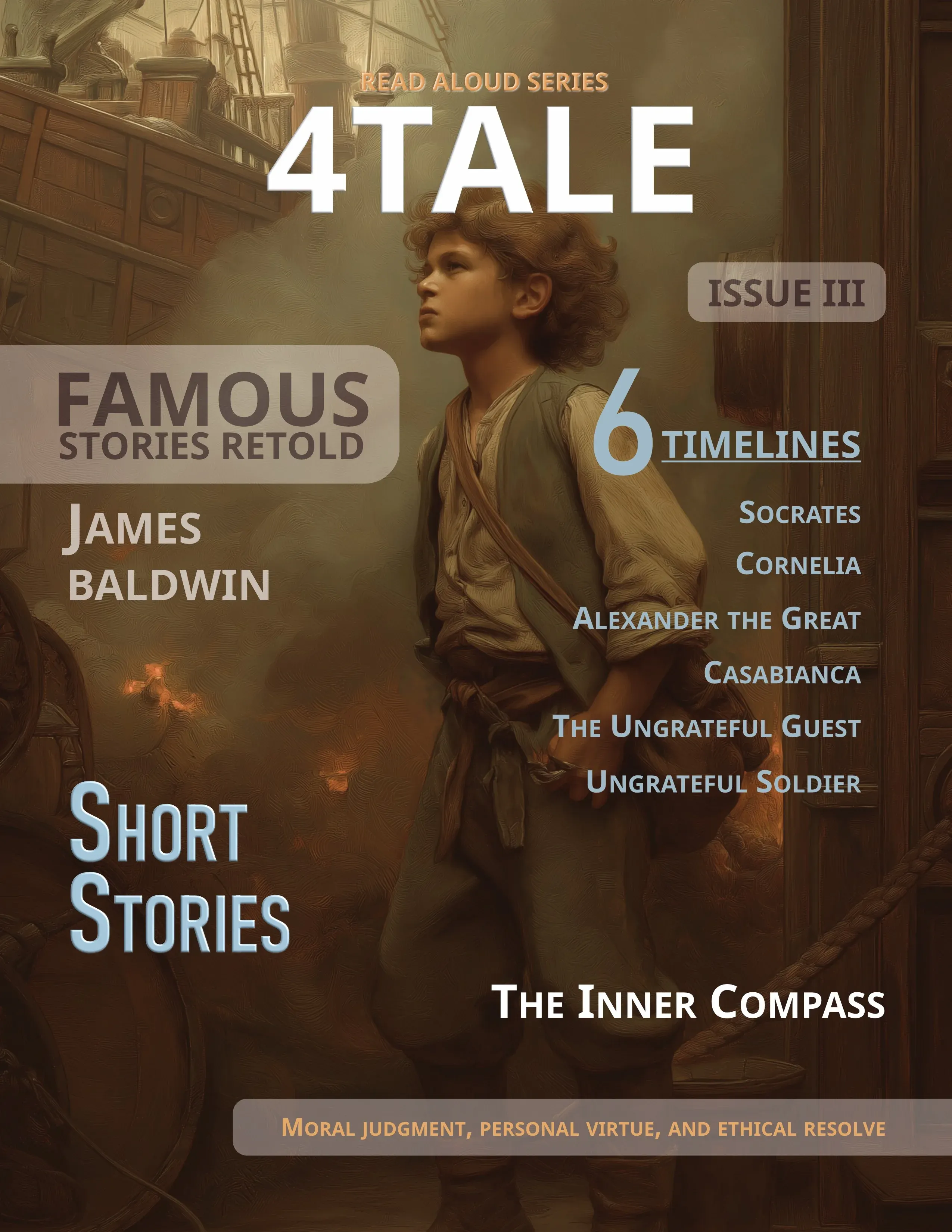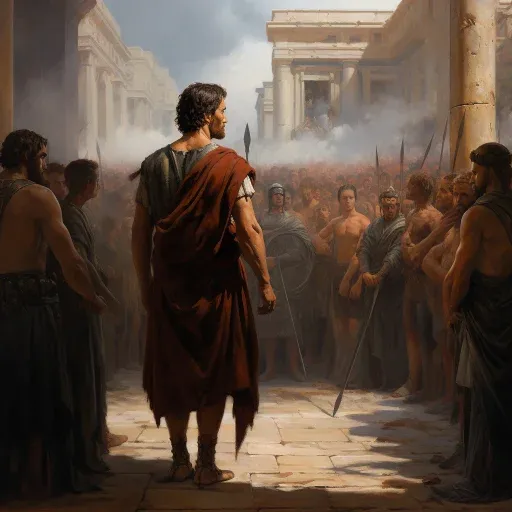
Heading

True Wealth: When asked about her jewels, she pointed to her sons, declaring them her most precious treasures.
Legacy of Education: Cornelia’s dedication to the education and upbringing of her sons left a lasting impact on Roman history and values.
A good book we like, we explorers. That is our best amusement, and our best time killer
- Roald Amundsen, Explorer
Cornelia's Jewels: A Tale of True Value in Ancient Rome
In the history of ancient Rome, few tales inspire as deeply as the story of Cornelia's jewels. Amidst the grandeur and opulence of the old city, we find a lesson of true value that transcends time. This age-old narrative, steeped in maternal love and virtue, reverberates with an enduring resonance. As we delve into the heart of this tale, prepare to unravel a treasure more precious than any gem - the unparalleled beauty of a mother's pride in her children. This is not merely a story; it's a poignant reminder of where the real worth lies.
Setting the Scene: A Morning in Ancient Rome
As the sun graced the cobblestones of Rome with its morning light, two young boys stood in a vine-covered summerhouse, their eyes keenly observing their mother and her friend as they strolled through a garden, a haven of natural beauty. The air was ripe with the scent of blooming flowers and the rustle of leaves, creating an atmosphere of serene tranquility. Ancient Rome, with its grandeur and magnificence, held many such moments of humble beauty; this was but one of them.
The Maternal Queen: Cornelia and her Sons
Cornelia, mother to the boys, was a picture of regal simplicity. Dressed in a plain white robe, her hands and neck devoid of any ornamental adornments, she exuded an aura of noble elegance. Her only crown was her soft brown hair, coiled neatly around her head. As she approached her sons, her face lit up with a tender smile, a testament to the indomitable love she bore for them. The boys, in their youthful admiration, saw their mother as none other than a queen, surpassing all the women of Rome in her majesty.
Podcast
Anticipation: The Promise of a Jewel Casket
The boys' curiosities were piqued when Cornelia announced the display of a casket brimming with exquisite jewelry. Their eyes darted towards their mother's friend, a woman adorned with rings and chains that displayed her wealth openly. The prospect of even more gems, hidden away in the promised casket, filled their hearts with a sense of wonder and anticipation. Little did they know, the biggest surprise was still to come.
Mesmerizing Gems: The Display of Extravagant Wealth
The opulence of the lady's jewelry was nothing short of breathtaking. Once the casket was opened, the boys' eyes widened as they took in the collection of jewels that sparkled in the sunlight. Each gem was a testament to the lady's immense wealth and status in society. The ropes of pearls, as white as milk and as smooth as satin, were a sight to behold. The rubies, as red as glowing coals, were mesmerizing in their vibrant hue. The sapphires, as blue as the summer sky, were a visual feast, while the diamonds that flashed and sparkled were a display of extravagant wealth. The boys, despite their innocence, could not help but be awestruck by the sight of such wealth.

Cornelia's Response: Unveiling the True Treasures
When questioned about her lack of jewels, Cornelia, in her wisdom, offered a response that was far from expected. She denied being poor, instead, revealing her own set of treasures - her sons. To her, her children were her real jewels, far more precious than any material wealth. This sentiment, expressed with such conviction, served to highlight the depth of Cornelia's love for her children. Her jewels were not of the earth but of her own flesh and blood, and they were worth more than any gem.
The Legacy: Impact of Cornelia's Jewels on Rome and Beyond
Cornelia's declaration of her sons as her jewels left a profound impact not only on her children but also on Rome and beyond. This simple yet profound statement was a testament to her values and her belief in the importance of nurturing the next generation. As her sons grew to become influential figures in Rome, they carried with them the lessons from their mother, of valuing people over material wealth. This story of Cornelia's jewels continues to resonate in the hearts of many, reminding us of the true treasures in life.
Conclusion
As we conclude our journey through the tale of Cornelia's jewels, we reflect on the profound truth it reveals. The real jewels of life are not material possessions but the virtues we instill in our loved ones and the legacy we leave behind. Cornelia's story, a testament to maternal love and wisdom, continues to inspire. It serves as a poignant reminder that true worth lies not in the opulence we can display but in the character and virtues we cultivate. Her 'jewels', her sons, outshine any worldly gem, proving that the most valuable treasures are often the ones we least expect.





